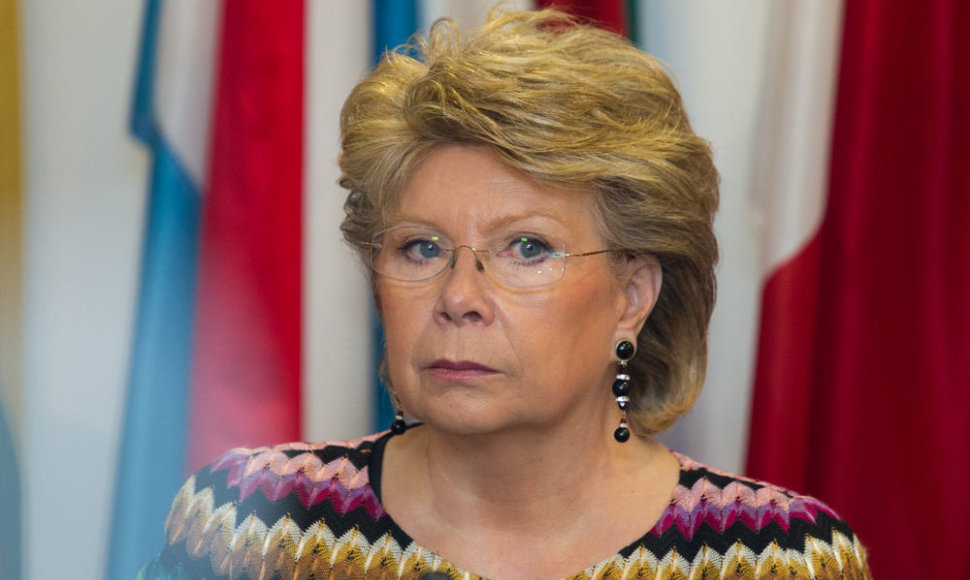Discrimination is "something very negative" not only from the human but also from the legal point of view.
"You must know that European treaties are very clear on this question. They say that human beings in Europe have the right to choose the kind of life they would like to live, and non-discrimination is one of the basic principles of the EU. This non-discrimination is also inscribed in the European law, so the European Union can react, if these laws would not be put into practice in member states, and I can tell you that the EU will react, if something is happening against the treaties and against the European law," the commissioner said after attending the opening of the House of Europe in central Vilnius earlier in the day.
Meanwhile European Parliament President Martin Schulz, who also attended the ceremony, underlined that attempts should be made in Lithuania and the whole Europe to prevent the rebirth of "scapegoat politics" when various minorities are blamed for existing social and economic problems.
"What we are facing for the time being is a very worrying but at the same time very interesting development because we are in risk that something is repeated what happened already in the 20th century that economic developments, social incoherence, (...) unemployment, the feeling of being excluded from the welfare, from the society lead to the radicalization against minorities," Schulz said.












